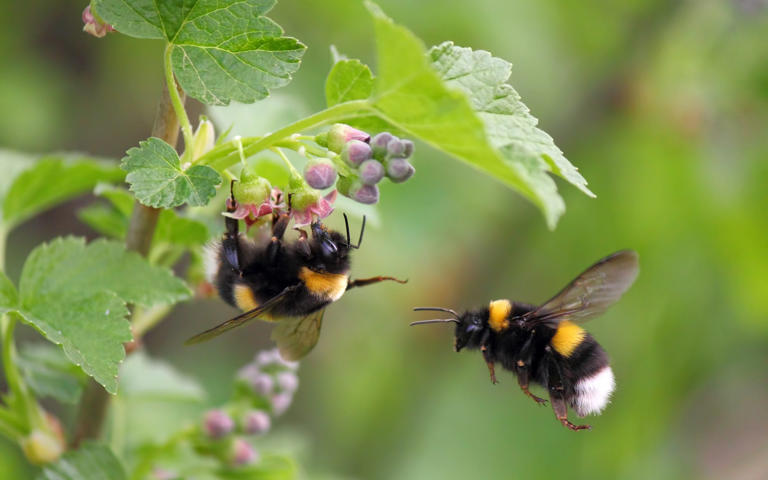Bees understand the benefits of teamwork, study finds
![]()
![]()
![]()
![]()
![]()
![]()
Bees understand the benefits of teamwork, study finds
Scientists found that in both tasks, the partnered bees waited for their bee friend to appear before attempting to reach the reward, suggesting they understand the benefits of teamwork.
Dr Olli Loukola at the University of Oulu said: “We could tell the bees were waiting for their partners’ help, as opposed to just pausing, because control bees that were trained to push the block alone did not pause.
“Comparing the partnered bees group against the control group, we concluded that the paired bumblebees were indeed waiting for their partners.
“Based on our observations, we believe they delay moving the block because they think they cannot do it on their own.
“While it’s possible that they want the other bee to share the load or the reward, our experimental set-up was not designed to investigate this aspect specifically.
“Studying their prosocial behaviour is an interesting avenue for future research.”
Bees understand the benefits of teamwork, a study suggests.
Finnish researchers devised an experiment in which bumblebees were taught to push a small brick out of the way, or navigate a tunnel, to get to a tasty nectar treat.
The bees were taught to either carry out the task alone or with the help of a partner.
Species such as chimpanzees, bottlenose dolphins, Bornean orangutans, brown capuchins, Asian elephants, wolves, and spotted hyaenas have shown evidence of actively coordinated collaboration but it was not known if it was possible in insects.
In the past few years, bees have been found to be far more socially intelligent than previously believed.
In March, researchers at Queen Mary University of London showed that the insects can solve puzzles and then pass on the technique to their hive mates.
Bumblebees were taught to nudge a lever, and then spin a floor-plate to access a reward of sugary water.
They were then able to demonstrate the solution to their fellow bees, so that they too could enjoy the treat, even if they could not work out the puzzle themselves.
In the wild honeybees pass on information about the distance and direction of pollen by using “waggle dancing” but the behaviour was thought to be instinctive.
Experts said the finding proves bumblebees possess levels of cognitive sophistication which was thought to be unique to humans, and shows that cultural transmission may be possible among insect communities.
Bees are known to be capable of carrying out complex learned tasks in a laboratory setting, such as pulling a string or rolling a ball to gain a treat. They have been seen playing with balls, seemingly for fun, without any reward on offer.
The research was published in Proceedings of the Royal Society B.



 How to resolve AdBlock issue?
How to resolve AdBlock issue?